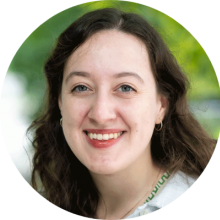UBC Health supports doctoral students through the Health Equity Stream of the Public Scholars Initiative to engage in tailored learning and networking focused on building an interdisciplinary community of scholars who are working to address complex questions and challenges of our world through research that improves health equity.
Cohort 2 2024/25
 | Amin AdibiProgram: Doctor of Philosophy in Pharmaceutical Sciences Read more about Amin |
 | Manvi BhallaProgram: Doctor of Philosophy in Resources, Environment and Sustainability I am motivated by the need to create a more just, inclusive world, where underserved and marginalized communities are not merely surviving but thriving. My experiences growing up in a low-income, racialized newcomer-dense neighbourhood, coupled with 15 years of community organizing experience created the foundation for my commitment to advancing intersectional, anti-colonial environmental health justice. Academically, I became interested in bridging health equity to the environmental context after an undergraduate endocrine physiology course asked us to research the cause behind fertility issues in Aamjiwnaang First Nation. I was introduced to the devastating intergenerational health impacts of endocrine disrupting chemicals (EDCs) due to industrial activities and pollution. I could not believe that we lack sufficient regulations to prevent this— particularly for Indigenous communities who continue to experience compounding health inequities due to settler colonialism. During my MSc in public health & health systems, my climate health research identified a need for greater interdisciplinarity in policy-making & increased inclusion of lived experiences from structurally vulnerable populations in the design of regulatory practices and accountability structures. Thus, for my PhD, I was inspired to pursue research which ensures that communities whose health outcomes are most affected by environmental issues are meaningfully involved in designing solutions. Read more about Manvi and visit her website See Manvi's Presentation from Voices for Health Equity 2024
|
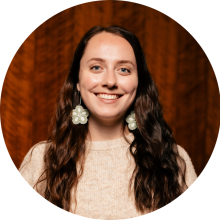 | Logan BurdProgram: Interdisciplinary Graduate Studies - Doctor of Philosophy in Community Engagement, Social Change, and Equity My hope is that this research will contribute to the representation and distinct understanding of Métis ways of knowing and being within health systems and health equity scholarship, ensuring that Métis voices—particularly those of our youth—are centred and prioritized. This collaborative and youth-led work will explore how Métis understandings of life promotion can inform upstream youth suicide prevention efforts. Métis youth are well-positioned to respond to increasing calls for better, strengths-based, youth-driven life promotion approaches to shape the future of upstream youth suicide prevention. |
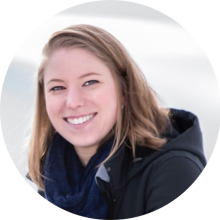 | Lindsay BurtonProgram: Doctor of Philosophy in Nursing Through collaborative and action-oriented scholarship, I hope to contribute to the design of health systems that prioritize equity, especially as digital health solutions are increasingly integrated. My research aims to center patients in health services design by fostering interdisciplinary collaboration that ensures diverse perspectives are considered. By emphasizing equity in digital health, I aim to support the development of inclusive solutions that improve access and outcomes for all patients. |
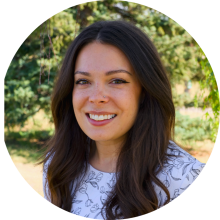 | Michelle GagnonProgram: Doctor of Philosophy in Nursing My motivation in joining the Health Equity Stream is to further develop my skills, knowledge base, and competencies to uphold a robust equity oriented lens within the field and practice of psychedelic-assisted therapy (PaT). As psychedelic medicine continues to evolve and approach wider healthcare implementation, health equity questions range from local to global involvement, including: tactics used to legitimize psychedelic substances into contemporary scientific domains from their profoundly long historical use by Indigenous nations with various associated ontologies, epistemologies, and practices; three-pronged stigmatization of PaT relating to the substances themselves, mental illness (and treatments of), and psychedelic use within policy and research realms (e.g., disproportionate incarceration of Indigenous people and people of colour for non-violent drug offences related to the ‘War on Drugs’); research designs and protocols that do not account for the contextual, relational nature of psychedelics or their application for diverse, non-dominant populations and groups; and structural inequities involving regulation (e.g., decriminalization, legalization, privatization). Through the development workshops, collaborative knowledge building, and mentorship offered by the health equity stream, I aim to enhance my deeply-rooted ethically-informed foundation to be better positioned to address and actively attend to these complex, multifaceted, imminent questions of psychedelic practice. Read more about Michelle |
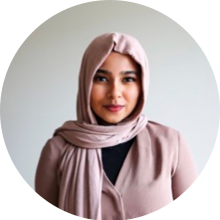 | Zeba KhanProgram: Doctor of Philosophy in Women+ and Children's Health Sciences Despite the prevalence of people who experience period pain, knowledge of period pain and how to effectively manage period pain is surprisingly low. Period pain is more severe among youth and impacts their ability to participate in day-to-day activities. By gaining a deeper understanding of how youth access period pain care, I will develop a web-based intervention that will support youth in better managing their periods. Ultimately, my project will empower youth to seek the care that they need to effectively manage their periods. Read more about Zeba |
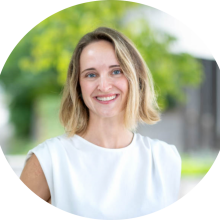 | Alexa NortonProgram: Doctor of Philosophy in Interdisciplinary Studies My work explores the social contextual forces that are at play within clinical and public health interventions that aim to reduce toxic drug-related overdoses and harms. This work is necessarily collaborative, engaging with and bridging the perspectives of clinicians, policymakers, and people who use drugs. I believe that evidence should not be limited to the sole examination of health and social outcomes. Scholarship that advances health equity must be inclusive of and responsive to the needs of individuals working within and accessing health systems. Read more about Alexa |
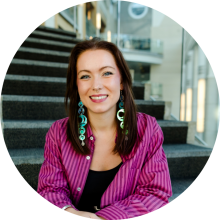 | Chelsey PerryProgram: Doctor of Philosophy in Population and Public Health nit, Chelseyhl way Nisga’a niiy Gingolx wil w̓itkgwiy. I am a citizen of the Nisga’a First Nation and come from the village of Gingolx. I use she/they pronouns and currently live on the unceded and traditional territories of the Musqueam, Squamish, and Tsleil-Waututh Nations. |
| Rachel SternProgram: Doctor of Philosophy in Geography I came to study health inequity through looking at the geographies of extreme heat. Studying heat challenges disciplinary boundaries, as it is at once a health concern, a planning issue with the built environment, an embodied and emotional experience, and an experience that takes place in the context of existing urban inequity. As a qualitatively trained geographer, I am focused on the ways that we can understand extreme heat through people’s stories about their bodies, environments, and communities. In my joint Public Scholars Project with Katherine White, who is quantitatively trained in public health methodologies, we are challenging the disciplinary binaries for addressing health inequities, asking how people’s stories and experiences can work with more traditional public health data to reveal existing inequities and possibilities for transformation. Our work with accessible indoor air sensors, diaries, and oral histories also seeks to put participants in control of their own data and life stories, sharing useful temperature and air quality data with them as they share their stories with us. Read more about Rachel
|
 | Katherine WhiteProgram: Doctor of Philosophy in Population and Public Health |
Cohort 1 2023/24
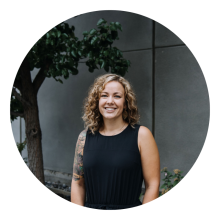 | Lauren AirthProgram: Doctor of Philosophy in Nursing I hope to see a better integration of university-community partnerships, that have the potential to address public health crises. Read more about Lauren See Lauren's Health After 2020 Dialogue Session
|
 | Kennedy BorleProgram: Doctor of Philosophy in Interdisciplinary Studies Being part of the Health Equity Stream means building an interdisciplinary community of practice with other researchers who have similar values to me where I can develop my skills and knowledge as a health equity researcher. Health equity is a human right, and my goal is to orient all of the work that I do in equity and justice. Read more about Kennedy. See Kennedy's Presentation from Voices for Health Equity 2024
|
 | Andrea BurrowsProgram: Doctor of Philosophy in Nursing Imagine a society where even the most marginalized and vulnerable voices are empowered to speak out and receive the health and social care they need and deserve. I enter into my research inquiry grounded in professional nursing expertise and committed to using that knowledge to bring about a reality of ‘health’ for people and communities. Specifically, my work aims to advance our understanding of how virtual care can be a tool for building relationships with new parents in remote communities in BC. By working in partnerships to amplify the voices of underrepresented groups like new parents, we can co-create knowledge that articulates what truly matters and shapes the reality we aspire to. Read more about Andrea See Andrea's Presentation from Voices for Health Equity 2024
|
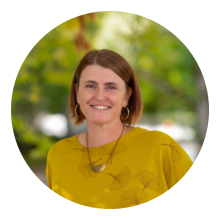 | Allison CampbellProgram: Doctor of Philosophy in Gender, Race, Sexuality and Social Justice UBC Health defines health as “an attribute of individuals, communities, and societies.” Women's health needs in Canadian prison settings are not well-understood. Women's reproductive health, including the health implications of maternal-infant connection and separation in the prison context, are even less understood. My research into reproductive experiences is BC prisons designated for women will bring focus to a critical health equity issue in our society. Moreover, knowledge gained from this work has potential to not only reduce health inequities in prisons but also promote health equity for marginalized individuals in all of our communities. Strong community partnerships are essential to this work. Read more about Allison. |
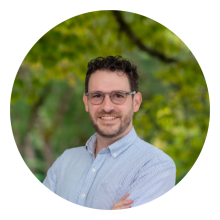 | Jonathan EaseyProgram: Doctor of Philosophy in Educational Studies My research aims to make PrEP—an HIV prevention strategy—more readily available to Queer patients in Vancouver. My motivation comes from my experience volunteering for many years at a local Queer community clinic. At the clinic, I often hear patients say, ‘I had to come here because my doctor wouldn’t give me PrEP.’ I also know from first-hand experience that there’s a solid base of knowledge in the community about PrEP that is often not shared by healthcare providers. I’m motivated to do this work because I know that through it, I’ll create tools to help increase PrEP access. Read more about Jonathan. See Jonathan's Presentation from Voices for Health Equity 2024
|
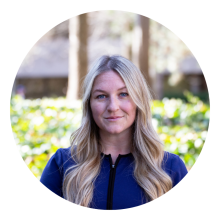 | Katherine HastingsProgram: Doctor of Philosophy in Population and Public Health This work sets out to establish an inclusive and responsive suicide care framework within an integrated youth services network in BC. By engaging youth, families, and service providers, we will identify meaningful and tangible ways to enhance access, reduce stigma, and improve the quality of suicide care. Keen on youth-centered solutions, I’m hopeful that the scholarly output will be more accessible and useable across stakeholders/rightsholders groups (including policymakers), which I believe play a powerful role in systems change. Read more about Katherine. |
 | Jennifer McDermidProgram: Doctor of Philosophy in Interdisciplinary Studies |
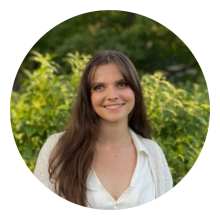 | Jennie PearsonProgram: Doctor of Philosophy in Interdisciplinary Studies By using a critical, imaginative approach, my work aims to explore beyond the current uncaring systems to identify the role of ongoing mutual aid on the pathway to building caring futures. Learning from abolitionists, my work extends definitions of health equity to consider ‘thriving’ as a collective goal, which includes joy, abundance, and rest. Using this definition, I will explore sex workers’ strategies, needs, and desires in building caring communities in which the ability to thrive is the central organizing component of our lives. Read more about Jennie. |
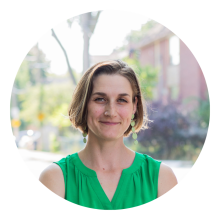 | Sabina StaempfliProgram: Doctor of Philosophy in Nursing My hope is that this research will be able to get into the hands of the families, residents, care staff, and leaders of long-term care homes who want to be the drivers of change. Research has been traditionally inaccessible to this population, and my aim is to produce something that can be used by people with various levels of abilities and education to make small incremental changes in their own long-term care home environments. By working closely with the people who will eventually be using the information we co-create, we will ensure this information is accessible and actionable and gives the right people the tools they need to start to address the persistent health inequities in the long-term care sector. Read more about Sabina. |
